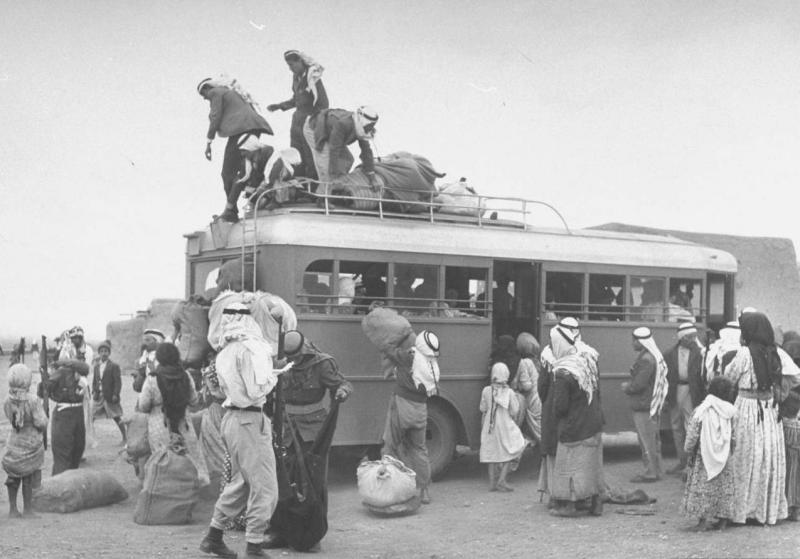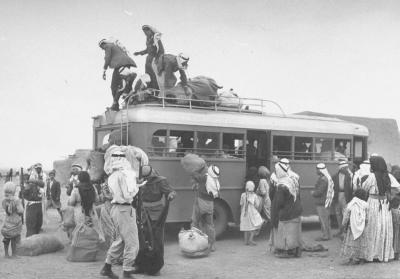The sight of Palestinians besieged in Gaza reopens old wounds in the hearts of elderly refugees in Lebanon, reviving the painful memories of their flight during the 1948 war from villages and towns that were once part of British-mandated Palestine and have now become part of Israel. Despite the scenes broadcast on television showing the war between Israel and the Palestinian Hamas movement, citizenship graduate Badour Al-Hbeet, who fled her home near the coastal city of Akka 75 years ago, still longs for a return, having ended up in the overcrowded Burj el-Barajneh camp in Beirut.
The Nakba
Palestinians fled to Lebanon and other Arab countries during what is known as the "Nakba" when they were expelled from their homes with the declaration of the State of Israel in 1948, even though Israel disputes claims of forcing them to leave. The tents that initially sheltered them have made way for camps, such as Burj el-Barajneh, filled with poorly constructed and chaotic concrete buildings that know nothing of urban planning. However, the situation of Palestinian refugees in Lebanon, whether survivors of the early days or their descendants, has not changed despite the passage of decades. They remain stateless, unable to own property, and the jobs they are allowed to undertake are limited.
The Worst Situation
Walaa Kyal from the British Asius Charity, which investigates refugee issues, stated, "The situation is literally desperate." She added that Palestinians who fled to Lebanon face "the worst situation" compared to those who went to other countries in 1948. Palestinians were able to live more integrated lives in the societies of other Arab countries, and some became citizens. However, Lebanese authorities have proven to be much less tolerant due to fears of altering the volatile sectarian composition in the country.
"The Battle of the Whole Nation"
Many Palestinians who fled to Lebanon and their descendants still live in 12 refugee camps across the country, which now hosts around 174,000 Palestinian refugees. The walls in Burj el-Barajneh, like those in other camps, are covered with writings supporting the Palestinian factions that effectively control the camps. The United Nations Relief and Works Agency for Palestine Refugees (UNRWA) states that security and governance are in the hands of popular committees and Palestinian factions. Lebanese security forces often remain outside the camps.
Since Hamas launched its attack on Israel and Israel responded with devastating airstrikes on Gaza, new writings have appeared on the walls. One message written on a wall says, "The battle of the whole nation, the deluge of Al-Aqsa," referring to the name Hamas gave to its attack on Israel on October 7.
Gaza
In the Gaza Strip, a narrow coastal strip of land measuring only 40 kilometers in length, 2.3 million people live, most of whom are also Palestinian refugees displaced from what is now Israel. They are being displaced once again. Residents of northern Gaza have fled their homes after being urged by Israel to move south for their safety, even as Israel continues to bomb sites across the strip. However, this time, they cannot leave the borders of the Gaza Strip. Arab leaders, especially from Jordan, which borders the West Bank, and Egypt, which shares a border with Gaza, have stated that Palestinians must not be expelled from their lands again. For Khadija Stitiah, the mother of Zahra, who was nine years old when her family was deprived of their home in Safad, now part of northern Israel, in 1948, the recent news of the mass displacement of Palestinians in Gaza makes her body shudder.




